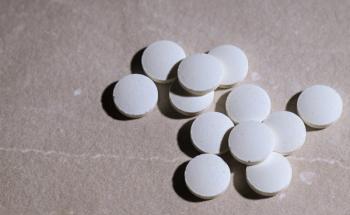
Top Takeaways From the Senate Committee Hearing on Semaglutide Pricing
In the US, Ozempic costs more than 9 times what it does in Germany, while Wegovy is more than 4.5 times more expensive than in Denmark.
Novo Nordisk President and CEO Lars Fruergaard Jørgensen stepped into the hot seat during a September 24 hearing of the US Senate Committee on Health, Education, Labor, and Pensions. Over nearly 2 and a half hours, the committee, chaired by Senator Bernie Sanders (I, Vermont), questioned Jørgensen on topics ranging from the impact of high drug prices to the role of pharmacy benefit managers (PBMs) in the pricing of Novo Nordisk’s blockbuster glucagon-like peptide-1 (GLP-1) receptor agonist semgalutide (Ozempic, Wegovy).
During his opening statement, Sanders acknowledging that by pricing
“What they are doing is perfectly lawful,” he said. “They are simply taking advantage of the fact that, until very recently, the United States has been the only major country not to negotiate the cost of prescription drugs.”1
Put another way, Sanders continued, “Novo Nordisk and other drug companies can charge us exactly as much as the market will bear—and that is exactly what they are doing.”
There are no doubts that the US health care system is opaque and complex, and—as many committee members acknowledged—pharmaceutical manufacturers are not the only piece in the drug pricing puzzle. But, Sanders said, “Prescription drugs in this country must be affordable, and we must not be forced to pay far higher prices than people in other countries pay for the exact same product.”
READ MORE:
Our full coverage of the senate hearing will be published in the coming days. In the meantime, read on for the top 5 takeaways from today’s testimony.
The price disparities between the US and other countries for both Ozempic and Wegovy are stark. With a price of $969, Ozempic costs more than 9 times in the US what it does in Germany, where it retails for $59. Wegovy, priced at $1349, is more than 4.5 times more expensive in the US than it is in Denmark, where it is available for just $186.
Concerns about the impact of high drug prices in the US aren’t just economic—they’re moral as well. The high prices of life-saving medications, especially those for chronic conditions, are leading to preventable deaths and creating a significant financial burden on the US health care system. Sanders cited 2 studies from Yale University researchers: In the first study, epidemiologist Alison Galvani, PhD, found that over 40,000 lives per year could be saved if Wegovy was available at an affordable price.2 In the second, Melissa Barber, a health care economist at Yale University found that Ozempic can be manufactured profitably for less than $5 a month.3
Jørgensen and Novo Nordisk are willing to collaborate with the Committee and PBMs to find pricing solutions. When pressed by several committee members, including Sanders and Maggie Hassan (D, New Hampshire), Jørgensen agreed that he would be open to discussions with PBMs based on their commitments that a lower semgalutide list price would not impact formulary coverage.
Scrutiny into PBM practices must continue. Across the bipartisan committee, all senators agreed that PBM practices play a significant role in the drug pricing problem. In addition to Sanders, Senators Tim Kaine (D, Virginia), Mike Braun (R, Indiana), and Roger Marshall, MD (R, Kansas) heavily criticized PBMs, with Marshall emphasizing that “Novo Nordisk is not the villain in this story; they’re a hero. We should be here celebrating this miracle innovation.”
Drug pricing must be addressed, but solutions need to balance affordability with research and development (R&D) incentives. Senators Marshall, Mitt Romney (R, Utah), and Ranking Member Bill Cassidy, MD (R, Louisiana) all raised concerns that if profit incentives weren’t preserved, pharmaceutical companies would lose their incentives to develop new treatments. But as pricing currently stands, the US bears a disproportionate burden when it comes to paying for R&D that benefits individuals on a global level.
Check back within the coming days for Drug Topics' full coverage of the Senate HELP Committee hearing with Novo Nordisk President and CEO Lars Fruergaard Jørgensen.
READ MORE:
References
Prepared remarks: Sanders leads HELP committee hearing with Novo Nordisk CEO on outrageous Ozempic and wegovy prices. News release. Bernie Sanders, US Senator for Vermont. September 24, 2024. Accessed September 24, 2024.
https://www.sanders.senate.gov/press-releases/prepared-remarks-sanders-leads-help-committee-hearing-with-novo-nordisk-ceo-on-outrageous-ozempic-and-wegovy-prices/ Pandey A, Ye Y, Wells CR, Singer BH, Galvani AP. Estimating the lives that could be saved by expanded access to weight loss drugs. MedRxIv. Published June 28, 2024. doi:10.1101/2024.06.27.2430955
Barber MJ, Gotham D, Bygrave H, Cepuch C. Estimated sustainable cost-based prices for diabetes medicines. JAMA Netw Open. 2024;7(3):e243474. doi:10.1001/jamanetworkopen.2024.3437
Newsletter
Pharmacy practice is always changing. Stay ahead of the curve with the Drug Topics newsletter and get the latest drug information, industry trends, and patient care tips.























